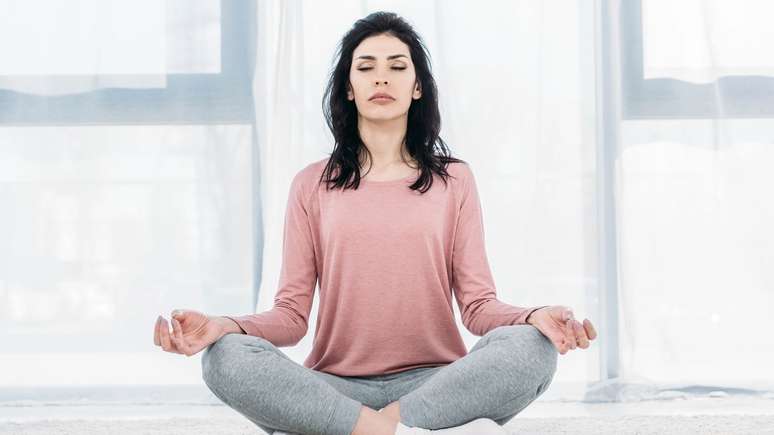You can achieve a more balanced routine with small adjustments
Many people think that a real revolution in everyday life is needed to achieve a healthier life. However, there are a series of simple measures capable of bringing significant benefits from both a physical and physical point of view. emotional. Below, take a look at some of them.
1- Give a hand to those you love
Holding hands has notable effects on our emotional state, especially when we are with those we love: it helps to lower the blood pressureto reduce the Pain and to dampen experiences stressful.
“When you really understand what holding hands means — what it is and what effects it has — you begin to understand almost every aspect of what it means to be human,” says James Coan, a clinical psychologist and director of the Virginia Laboratory for Affective Neuroscience, at the University of Virginia.
2- Go up the stairs
Choosing the stairs over the elevator has been considered wise advice for years, but new research backs up this health advice.
A meta-analysis presented at a European Society of Cardiology conference found that people who habitually climb stairs were 39 percent less likely to die from heart disease than those who did not practice this habit. They also had a lower risk of stroke and heart attack.
3- Consume one Brazil nut per day
A study conducted by researchers at the University of São Paulo (USP) showed that eating one unit of food per day helped replace selenium deficiency in older adults with mild cognitive impairment, which led to improvements in their cognitive functions, such as verbal fluency and the so-called constructive praxis, which involves skills such as motor execution, attention, language understanding and numerical knowledge.
This happens because oilseeds are very rich in selenium, an important mineral for the health of the body. brain and the central nervous system.
4- Learn to say “no”
Putting your own needs first often means disappointing others. And this prospect of disappointing someone can cause you to put your own needs aside.
But it is possible to improve your ability to say “no” without breaking down. Remember that the other person’s distress will not kill you, and that preserving your well-being will ultimately strengthen your relationships.
5- Do good
Spending money, time or energy on other people. Research consistently finds that acts of altruism, such as donating money, volunteering, or donating blood, benefit both the recipient and the donor, even when the donor expects nothing in return.
Helping others can create a positive feedback loop: just as doing good makes you feel good, altruism can generate more altruism and more well-being.
6- Practice mindfulness
Awareness is a way of meditationwith a particular focus on awareness training. According to Marcelo Demarzo, a doctor specialized in the technique, it is a “training of the muscles of attention”.
“Just as we train the body, we can also train the mind. Attention is fundamental in our daily lives and research shows that, on average, we spend half of our time distracted”, highlights Demarzo. He explains that, in mindfulness, the focus is not on emptying the mind or seeking a deep state of tranquility, but on observing what is happening, whether it is a difficult emotion, a feeling of pain or also an ambient sound.
7- Do a “life review”
In this review, people can systematically reflect on their past through conversation or writing, to identify their personality strengths and work on self-awareness and acceptance.
Life reappraisal emerged in the 1960s to help older adults articulate and make peace with their legacies. But new research suggests that the process of reflecting on experiences has value for people of all ages, even young adults and grieving children.
8- Cultivate friendships
People often think that close friendships form organically. But researchers who study relationships say that, in fact, the people who have the best friendships are the ones who are dedicated to those relationships.
Research shows that close relationships are essential for a healthy life. People who have a network of close and supportive relationships are better able to cope with anxiety attacks and depression. The theory is that close friendships help us regulate stress during difficult times, for example.
9- Make the most of your free time
In the book”Precious leisure for aging well“, published in Brazil by Edições Sesc, educator and researcher Manuel Cuenca Cabeza, 78 years old, professor emeritus at the University of Deusto, in Spain, explains that free time and free time are not the same thing: it is possible to have a lot of free time and no laziness includes the activities we do for the satisfaction they give us, not because they result in a reward, although there must be a personal gain in overcoming it for it to have value.
Because it requires mental effort, free time is considered an opportunity to stimulate brain plasticity (the brain’s ability to adapt and evolve) and can sometimes help people preserve their abilities and fight stigmas associated with age.
Source: Terra
Ben Stock is a lifestyle journalist and author at Gossipify. He writes about topics such as health, wellness, travel, food and home decor. He provides practical advice and inspiration to improve well-being, keeps readers up to date with latest lifestyle news and trends, known for his engaging writing style, in-depth analysis and unique perspectives.








